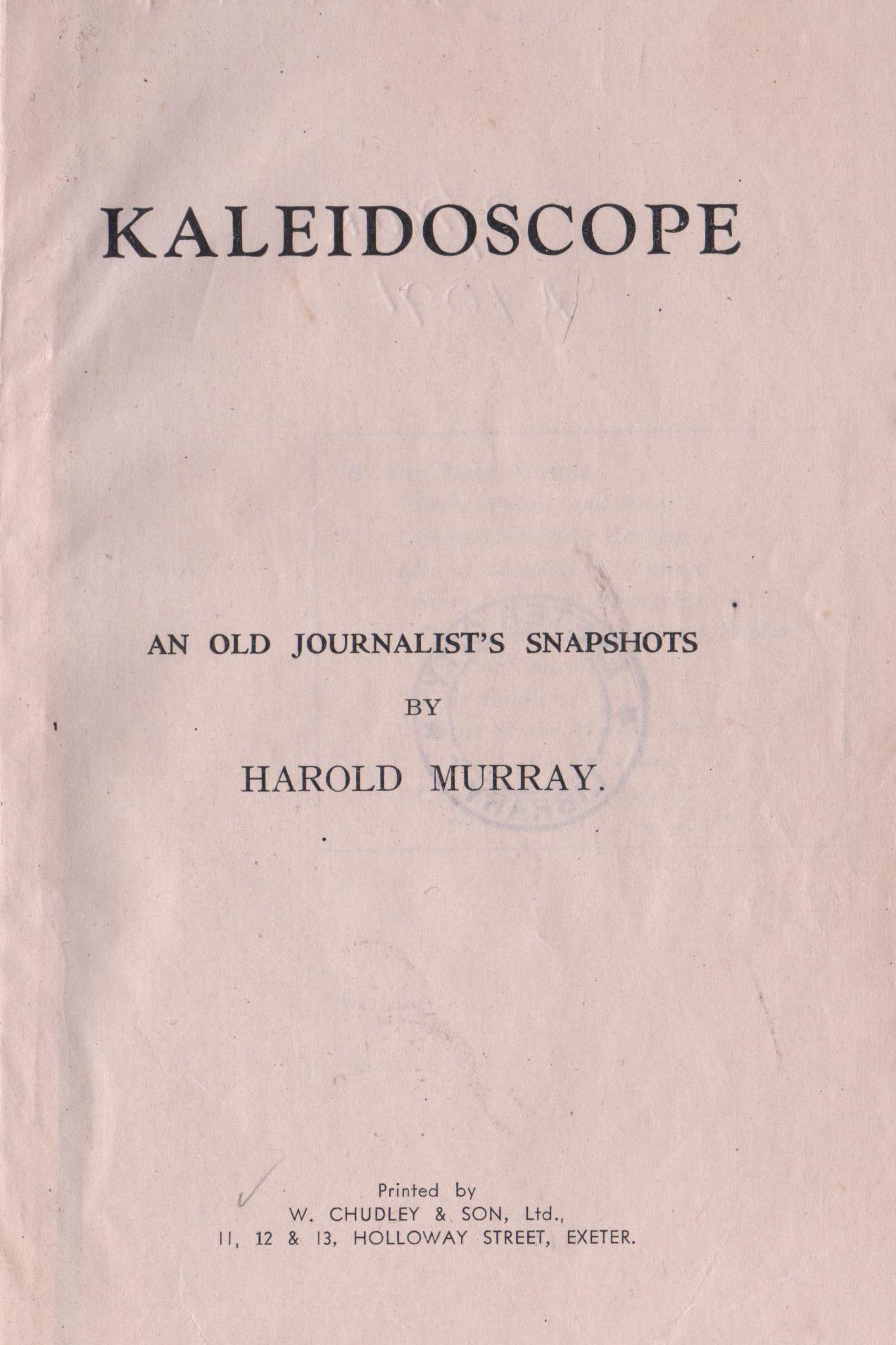
Like any decent journalist Harold Murray tried to avoid using clichés and well worn catch phrases in his work. It’s a pity that more radio journalists today ( particularly on Radio Five Live) aren’t as scrupulous. In his very entertaining Kaleidoscope (1946) Murray expresses his irritation at some of the worst examples of hackneyed speech in common use back then.
I remember the editor of the Nottingham Journal talking about misused words and hackneyed clichés which “makes us feel murderous when we hear them “. A. P. Herbert has devoted much thought to the subject. We are all more or less guilty. Why do we say, “I’ve got to catch a train, “ I’ve got to go.”? Why that superfluous “got”? Why at the end of a letter do we have to put “yours sincerely “, or, for that matter, “ yours “ anything? If ever I see girls talking now they seem to be crying ,” Ectually!”, Honestly!,” “ Definitely!”. There has been much talk about basic English. There is more silly slang from America, particularly from Hollywood, than ever before. I wonder how many popular catch phrases you can recall ( I mean before the radio) . The first I remember were, “Get your hair cut, “ Ask a policeman,” “ Now we shan’t be long,” “ Fancy meeting you, “ What ho! She bumps, “Make room for your uncle,” “Does your mother know you’re out,” “ Bob’s your uncle. “ Pop goes the weasel,“ liked nearly all catch phrases from a song was before my time, and you will know the weasel was a flat iron, pawned weekly. In these days catch phrases come mostly from “Itma” and the like.
We at Jot HQ would like to know whatever happened to “What ho! She bumps and “ Make room for your uncle “. Are there any in the Jottosphere who might have heard them being used ? We’d like to know. As for Honestly, Definitely and Ectually, we have our own Absolutely today. And we also have the recently introduced So that prefaces almost every explanation given by apparently intelligent spokesmen in radio interviews. The redundant’ Like’, liberally sprinkled in sentences delivered in estuarial accents by adolescents of all classes has been around for many decades and doesn’t look as if it will ever become unfashionable, unlike, ‘ grotty ‘ ‘way out ‘ and ‘psychedelic’.
I wonder what A. P. Herbert and Murray would have made of the frequent misuse by radio journalists with degrees in English of ‘ reticence’ for reluctance and ‘ enormity ‘ for a memorable event.
R.M.Healey

There are lots of these, of course. “Historic” and “legacy” for something that happened in or dates from the past (ie; practically everything), “awesome” for anything that’s quite good and – my personal bugbear – “iconic”, nominally as a standard of excellence, but in practice just for anything that’s moderately well-known.
Innit.
One broadcaster who ought to know better, given that he has a degree in history from a good University ( Edinburgh) is Nick Campbell. This morning I was so sickened by the sentimental pap he spouted on binmen and supermarket workers, who when they weren’t ‘brilliant’ or ‘ amazing’ were ‘legends’ or ‘ heroic’ that I turned off my radio. Thus a reasonably intelligent fifty-something man man is turned into the radio equivalent of a Sun journalist or social media ‘ influencer’. As for his obsession with dogs…